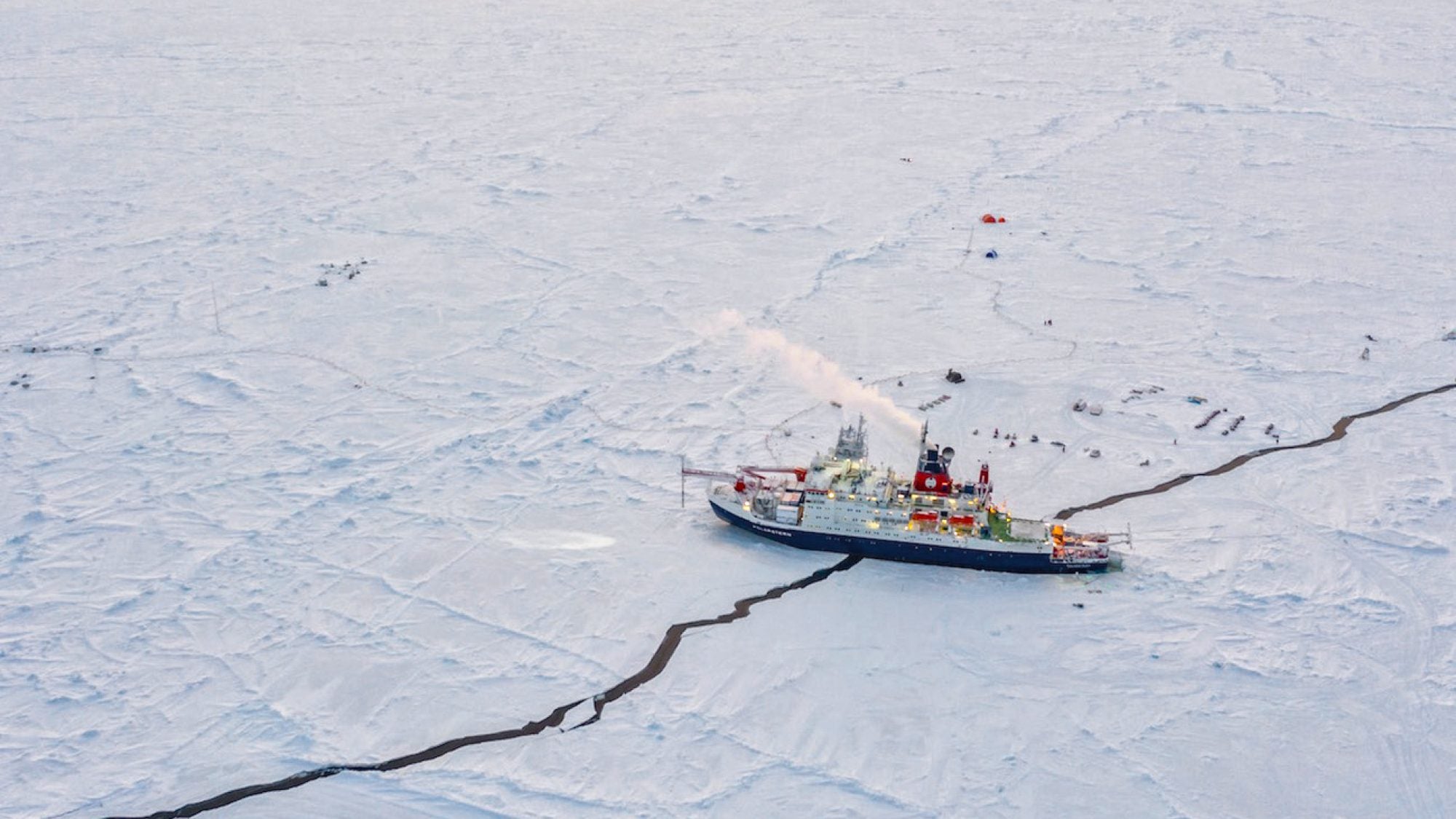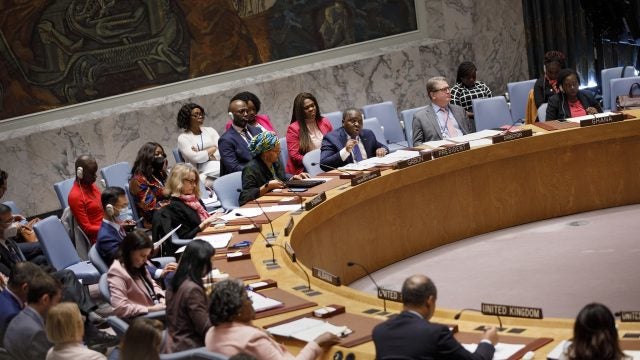
Title: The Future of Arctic Governance in a Fractured Geopolitical Landscape
This article explores the uncertain future of Arctic governance amid shifting global geopolitics. It argues that whether Washington and Moscow opt for confrontation or cooperation, multilateralism in the Arctic risks being overshadowed by bilateral dealings that are strictly transactional in substance. To address this challenge, the article suggests a bold governance proposal, modeled on the United Nations Security Council, that aims to balance great power influence with regional inclusivity, while also underscoring the need for Arctic states to collectively define the role of non-Arctic actors as the region becomes increasingly globalized.
Introduction
The future of Arctic governance increasingly hinges on the trajectory of US-Russia relations. Not only is the Arctic the shortest strategic corridor between the two nuclear superpowers, but accelerated militarization and NATO’s sharpened presence in the region—reinforced by the accession of Finland and Sweden—collectively elevate the risk of miscalculation and even fuel an arms-race dynamic in a geographically confined space marked by low trust. Yet, regardless of whether US-Russia relations stabilize, improve, or deteriorate, the Arctic Council risks being sidelined. With its future uncertain, the pursuit of stability through a new governance model that balances great power influence with regional inclusivity and addresses the growing role of non-Arctic actors is both a strategic imperative and a matter of foresight. In this context, a viable option would be to form a new organization or reform the Arctic Council based on a multi-veto structure similar, yet by no means identical, to the United Nations Security Council (UNSC).
The Arctic Council operates by consensus, with a focus on peaceful cooperation, sustainable development, environmental protection, and knowledge sharing. Its structure includes eight Arctic states as permanent members, six Permanent Participants representing Indigenous populations, and six working groups responsible for implementing the Council’s initiatives. While it allows observer status to non-Arctic states and inter-governmental and inter-parliamentary organizations, these observers have no decision-making authority—a privilege strictly reserved for the eight Arctic states. Critically, the Council lacks a permanent budget, international legal status, and enforcement mechanisms. Its policy outputs are therefore limited to non-binding recommendations, and it is explicitly prohibited from deliberating on defense and security matters, which are precisely the issues increasingly shaping the region’s geopolitics. This disconnect, in turn, threatens the Council’s continued relevance, even though it has never been the sole vehicle for regional governance despite its status as the region’s most prominent forum.
If Washington and Moscow pursue greater cooperation, bilateral arrangements could eclipse multilateral mechanisms, marginalizing other Arctic actors and diminishing the Council’s authority. On the other hand, if relations remain adversarial or grow worse, neither power will likely see the Council as a meaningful platform. This stems from two key factors: the Council’s lack of a mandate to address defense and security issues and the prevalence of sphere-of-influence thinking among senior policymakers in both capitals. In either scenario, multilateralism risks being displaced by transactional undertakings formulated bilaterally, thereby accelerating the Council’s marginalization. Three key developments contribute to this trend in the current environment.
Science, Sovereignty, and the Council’s Crisis of Relevance
The first key factor lies in how Washington engages with the Council under the Danish/Greenlandic leadership. While this is certainly not the first time the US government has expressed an interest in acquiring Greenland, US officials now appear determined to expand Washington’s influence and presence, an ambition that could shape the Trump administration’s approach to the Kingdom’s chairmanship. To this end, Washington may either refuse to cooperate or condition its engagement on both the Danish and Greenlandic authorities aligning with US interests in Greenland.
How this would play out depends on whether the Kingdom can strike the right balance to maintain the Council’s integrity while also appeasing Washington’s Greenland ambitions. If it resists US demands, it could strain US-Danish relations and the United States’ commitment to the Council. Conversely, if it aligns too closely with Washington, it would likely reinforce the current transactional trend in US foreign policy and further strengthen its sphere-of-influence mentality in the Arctic.
Second, the Arctic Council has remained functional largely due to Norway’s careful management, which has kept scientific working groups active despite the West’s suspension of high-level cooperation with Russia following the 2022 invasion of Ukraine. However, this balancing act may not be sustainable, particularly if the emerging signs of US-Russia rapprochement falter or collapse entirely. This is especially true today, given that scientific cooperation, once considered a neutral bridge even during periods of geopolitical tension, is increasingly being securitized; a development that mirrors Cold War-era dynamics but is now aggravated by the rise of techno-nationalism, where research, technology, and national defense are deeply interconnected. As science and technology become arenas of geopolitical rivalry and the US government retreats from Arctic research, the foundations of Arctic scientific diplomacy—a cornerstone of the Council’s relevance—are steadily eroding.
Finally, neither the United States nor Russia currently prioritizes climate change as a national security issue, diminishing the relevance of the Council’s environmental work in the eyes of both governments. Instead, both countries now focus on developing the Arctic’s vast natural resources. In a recent address to Congress, President Trump touted the $44 billion Alaska Liquefied Natural Gas project with Japan and South Korea, though neither country has expressed interest in the proposal, with both sides questioning the financial feasibility of the project. At the same time, his administration has also expressed interest in renewed collaboration with Russia on Arctic energy development. Given the US withdrawal from the Paris Agreement more broadly, continued engagement with and support for the Council’s environmental initiatives and projects appear increasingly improbable.
From Arctic Exceptionalism to Strategic Governance: Rethinking Multilateralism in a Fragmenting Region
Since the end of the Cold War, the Arctic has been somewhat idealistically portrayed as exempt from power-politics dynamics. This idealism is rooted in a long stretch of scientific, environmental, and diplomatic cooperation among the eight Arctic nations, as well as the consensus-based modes of operation of the Arctic Council. However, this era of multifaceted partnership ended with the Russian invasion of Ukraine. As such, the key question lies not in the Arctic Council’s survival, but what replaces it. Whether through pragmatic cooperation or sustained rivalry, US-Russia relations are likely to shape an Arctic order in which multilateral and collective deliberations risk playing a secondary role if regional stakeholders fail to recognize and address that the Arctic has historically lacked an integrated region-wide governance framework.
Maintaining multilateralism in the Arctic and preventing great power politics from dominating regional deliberations in the coming years, in turn, will require a pragmatic strategy that balances security interests with renewed multilateral engagement. A future framework must be proactive, inclusive, and move beyond the purely advisory nature of the current Arctic Council, which, despite its limitations, has made significant contributions.
Given Canada’s and the Nordic states’ shared concerns in the Arctic, such as climate change and the perceived growing Sino-Russo cooperation in the region, as well as their adherence to democratic governance, open trade, and liberal international order, some experts have proposed the idea of a Canadian-European/Nordic security coalition as a counterweight to a potential US-Russia-led order. While the plan holds strategic significance, this proposal lacks the military and political weight necessary to alter the regional power dynamic. Climate security, collective and/or coordinated approaches to hybrid-threats, and scientific diplomacy offer cooperative avenues, but they cannot substitute power politics.
More importantly, the implementation of this proposal would likely deepen divisions in regional governance by positioning Canada and the Nordic states in opposition to the United States and Russia, further destabilizing the current geopolitical balance rather than advancing multilateralism and regional stability. Most significantly, the proposal assumes a willingness among Nordic and Canadian officials to actively resist the Trump administration’s appetite for unconventional dealmaking and revisionist tendencies. As the recent meeting between Norwegian Prime Minister Jonas Gahr Støre and Donald Trump suggests, however, it is also plausible to assume that appeasing Trump on issues deemed critical by his team may be viewed as the more pragmatic course of action by some Nordic states, even if they privately express disagreement or disapproval.
A viable, albeit by no means flawless, counterproposal to a Canadian-European/Nordic security coalition would be the formation of a new Arctic governance organization, or a reformed Arctic Council, modeled in structure and authority after the UNSC. For such a body to be effective, it must possess legal status and a broadened mandate allowing it to address both soft and hard security threats. This would include force deployment, maritime security, climate change, and hybrid threats. Crucially, the body must institutionalize the political participation of Indigenous peoples, ensuring they hold permanent representation with decision-making power. This inclusion is vital not only for democratic legitimacy but also for leveraging their unique knowledge and advancing their long-standing interests in sustainable development and self-determination. Most importantly, this new body would grant permanent veto power to both Russia and the United States, ensuring their continued influence over Arctic affairs. Concurrently, a rotational veto should be established for the chairmanship, which should be reserved exclusively for the remaining six regional states.
The cornerstone of this model lies in its proposed dual-veto structure. Permanent veto power for Russia and the United States recognizes their enduring military and geopolitical interests in the region and, hence, could likely incentivize their engagement with multilateral institutions. By ensuring their strategic autonomy within a formalized framework, this structure lowers the cost of participation for these powers, making cooperation a more attractive alternative to unilateralism or bilateral arrangements that lack broader legitimacy. At the same time, the introduction of a rotational veto, tied to the chairmanship held in turn by the six remaining Arctic states, ensures that smaller regional actors retain meaningful leverage. While this does not eliminate the possibility of US-Russian bilateral engagement, it adds an institutional barrier that makes purely bilateral actions less effective unless they are also negotiated within the multilateral framework. Put differently, the multi-veto structure, rather than diluting sovereignty, creates a calibrated equilibrium. It affirms the strategic roles of the United States and Russia while institutionalizing the collective agency of other Arctic states. This could foster a sense of shared stewardship over the region, incentivize rule-based engagement, reduce the risk of zero-sum security competition, and thus provide a credible, functional alternative to fragmented Arctic governance.
To be sure, this proposal sidesteps the critical question of what role non-Arctic states should play, and to what extent their involvement is desirable or acceptable within the region’s governance structure at a moment when sidelining their interests may no longer be a viable option. What the proposed governance model offers, however, is a structured mechanism through which Arctic states can collectively deliberate and agree on the acceptable scope of external involvement and other issues like military balance of power, rather than leaving such decisions to the unilateral actions of the region’s most powerful actors. In addition, this proposal provides a potential pathway for re-engaging with Russia, offering a realistic opportunity to check Moscow’s deepening ties with Beijing. While most expert assessments agree that a full-scale “reverse Nixon” is unlikely to succeed, the Arctic could be a notable exception. In this region, Russia may be more open to alternatives to China given its historical reluctance to accept an expanded Chinese presence and the fact that its recent pivot toward Beijing, and also New Delhi, in the Arctic has been driven more by necessity—namely the pressure of both Western sanctions and suspension of high-level cooperation within the Council—than by strategic preference.
Whether through a reformed Arctic Council or the creation of a new body inspired by the UNSC, the future of Arctic governance depends on establishing a mechanism capable of managing cooperation and conflict while avoiding exclusive bilateralism that marginalizes smaller Arctic states. Admittedly, a model with multiple veto points, akin to the UNSC, would carry a considerable risk of decision-making paralysis. Yet this is precisely the dual challenge and opportunity that regional policymakers ought to confront: to design an institution resilient enough to accommodate divergent interests, yet flexible enough to act decisively when needed.
…
Nima Khorrami is a Research Associate at The Arctic Institute, where he has been researching Arctic geopolitics, including the role of the Arctic Council, for the past six years.
Image Credit: Manuel Ernst, CC BY-SA 3.0 DE, via ISPI
Recommended Articles

Critical maritime infrastructures (CMI), and in particular undersea communication cables, are increasingly under threat of attacks by malign actors who benefit from asymmetric capabilities and jurisdictional complexities in the maritime…

This article explores how the Palestinian crisis and the death of the two-state solution endangers the Hashemite Kingdom of Jordan. It illuminates the complicated relationship between Jordan, Israel, and Palestine…

Twenty-five years ago, the United Nations Security Council adopted Resolution 1325, establishing a framework that underpins the Women, Peace, and Security (WPS) Agenda. The Resolution recognized both the…